The Forum
Overview
The Forum brings together leaders, decision-makers, entrepreneurs, scholars, intellectuals, and artists to discuss pressing issues of the MEM region. The young change-makers have a unique opportunity to exchange views with senior representatives and experts, and to present ideas and proposals elaborated during the Seminar. The Forum is articulated in panels, key-note speeches by high-level speakers, and interviews. The number of panels varies depending on the current issues, ongoing projects, and collaborations. However, three themes are central and offered at each edition: geopolitics, economic challenges, and culture and art.
MEM Forum 2024
The Forum of the MEM Summit 2024 opened with a panel devoted to Swiss diplomacy, a series of keynote speeches delivered by institutional representatives and political leaders who highlighted the importance of diplomacy and dialogue during difficult times in the Middle East Mediterranean region.
Watch the Forum
Opening addresses and Keynote speeches
Welcome and opening addresses:
Lorenzo Cantoni, Pro-rector for Education and Students’ experience, Università della Svizzera italiana, Switzerland
Morena Ferrari Gamba, President of the City Council of Lugano, Switzerland
Marina Carobbio Guscetti, Member of the Cantonal Council, Director of the Department of Education, Culture and Sport, Republic and Canton Ticino, Switzerland
HE Ignazio Cassis, Federal Councillor, Federal Department of Foreign Affairs, Switzerland
Keynote speeches:
HE Mohamed Mehdi Bensaid, Minister of Youth, Culture and Communication, Kingdom of Morocco
Alexandra Xanthaki, UN Special Rapporteur in the field of cultural rights, Switzerland
HE Jacques Ducrest, Ambassador, Head of International Relations Division, State Secretariat for Education, Research and Innovation, Switzerland
8 November 17:00 – 19:30
Meet the Swiss ambassadors in the MENA region
This panel, moderated by the Special Envoy for the MENA region, will be dedicated to Swiss diplomacy in the Middle East Mediterranean region. Swiss ambassadors to Qatar, Oman and Yemen, France, and Italy will discuss the current challenges in the region, priorities, and Switzerland’s role as a mediator and facilitator of peace processes.
9 November 09:00 – 14:00
Panel 1: Evolving geopolitical configurations in the MEM Region: what lies ahead?
Over the past year, the geopolitical landscape of the Middle East has undergone rapid and profound transformations, with significant implications for the region’s future. Tensions are at their highest: the war in Gaza, increasing violence in Lebanon, and escalating tensions between Iran and Israel are driving instability to new heights. As hopes for de-escalation diminish, the region faces immense human suffering, widespread destruction, economic setbacks.
As the situation continues to evolve, the future geopolitical configurations and power balances in the region remain uncertain. This panel explored a wide range of critical issues, including the role of external powers, the potential for diplomatic resolutions, and the humanitarian consequences of ongoing conflicts.
In this unstable and unpredictable context, distinguished experts in geopolitics, international relations and journalism provided invaluable insights and perspectives for analyzing the region’s ever-shifting dynamics and potential future outcomes.
Panel 2: How Culture Fosters Dialogue and Drives Innovative Diplomatic Approaches
This panel emphasized the expansive role of culture in promoting dialogue, collaboration, and peace across borders. Political power dynamics and relationships between countries were analyzed through the lens of culture and cultural narratives. By fostering and strengthening multifaceted engagement among people and countries — while respecting and enhancing their diverse identities — there is immense potential to sustain a deeper global dialogue.
Art and literature, in particular, offer powerful tools for imagining new solutions to complex global challenges, inspiring innovative perspectives beyond traditional frameworks. Culture, in its broadest sense, is an essential aspect of international relations, and cultural diplomacy has emerged as one of the most influential tools within diplomatic strategies.
This discussion also highlighted the importance of reintroducing the human dimension into diplomacy, ensuring that empathy and human values are central to diplomatic efforts, while also integrating the non-human dimension, recognizing the ecological and environmental factors that impact global challenges. Speakers from diverse fields approached this question from various perspectives, offering a range of insights and examples.
Panel 3: Shared Waters, Shared Futures: building cooperation through water diplomacy
Water is one of the most crucial yet contested resources in the Middle East Mediterranean region, where shared water sources often span across national borders, creating both opportunities for cooperation and risks of conflict. This panel explored how water diplomacy can serve as a tool for fostering regional stability, cooperation, and sustainable development amid increasing water scarcity and environmental challenges.
The discussion focused on key transboundary water issues, such as the management of the Jordan River, Tigris-Euphrates system, and the Nile, where multiple countries rely on shared water resources for agriculture, energy, and drinking water. Panelists explored successful examples of water diplomacy and cooperation, as well as examine ongoing disputes and the geopolitical tensions they create.
Experts also addressed the impact of climate change on water availability, including how rising temperatures, decreasing rainfall, and overuse are exacerbating water shortages. The session highlighted innovative approaches to water management, technological solutions, and policies that can promote equitable water sharing and environmental sustainability.
By focusing on the role of international law, regional cooperation mechanisms, and the potential for multilateral negotiations, the panel aimed to identify pathways toward lasting peace and security in the region, built around shared waters and shared futures. This discussion underscored the critical importance of water diplomacy as a pillar of regional resilience in the face of growing environmental and political challenges.
Panel 4: Is dialogue still possible during difficult times?
Young change-makers offered valuable recommendations and insights on whether and how it is possible to sustain meaningful dialogue during challenging times. These contributions are the result of a process initiated during a MEM workshop in Cyprus with MEM Alumni, leading to the drafting of a document titled Foundations for Dialogue. Alumni and young participants closely collaborated, during the MEM Seminar, to shape a shared vision, culminating in a call to action aimed at fostering enduring conversations even in the face of uncertainty.
Speakers
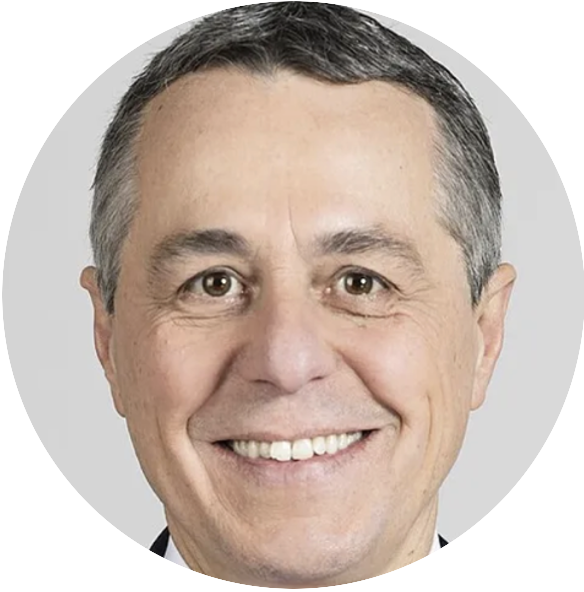
HE IGNAZIO CASSIS
Federal Councillor, Federal Department of Foreign Affairs, Switzerland
Ignazio Cassis worked as a medical doctor before starting his political career as a member of the communal parliament for Collina d’Oro, in the district of Lugano. Whilst serving as the cantonal physician, he was elected 2007 to the National Council as a member of FDP – The Liberals. 2017 Ignazio Cassis was elected to the Federal Council. In line with the seniority principle of the Federal Council he took on the presidency of the Swiss Confederation in 2022.
Ignazio Cassis (FDP), elected by the United Federal Assembly on 20 September 2017, took up his post as head of the Federal Department of Foreign Affairs (FDFA) on 1 November 2017.
For two years prior to his election to the Federal Council, Mr Cassis was president of the parliamentary group of the FDP.The Liberals, of which he was a member since his election to the National Council in 2007. From 2015, he chaired the National Council’s Social Security and Health Committee. He was also vice-chair or chair of various parliamentary groups. His political career began in 2004 with his election to the legislative authority of the Ticino municipality of Collina d’Oro.
After graduating in medicine from the University of Zurich in 1987, Ignazio Cassis obtained a doctorate from the University of Lausanne in 1996 and a master’s degree in public health from the University of Geneva the same year.
From 1988 to 1996 he worked as a doctor, specialising 1998 in internal medicine and in prevention and public health. From 1997 to 2008 he was cantonal physician for the Canton of Ticino. From 2008 to 2012 has held the office of Vice-President of the Swiss Medical Association and since 2012 has held the office of various organisations in the health sector (Curafutura, CURAVIVA, EQUAM, RADIX, etc.).
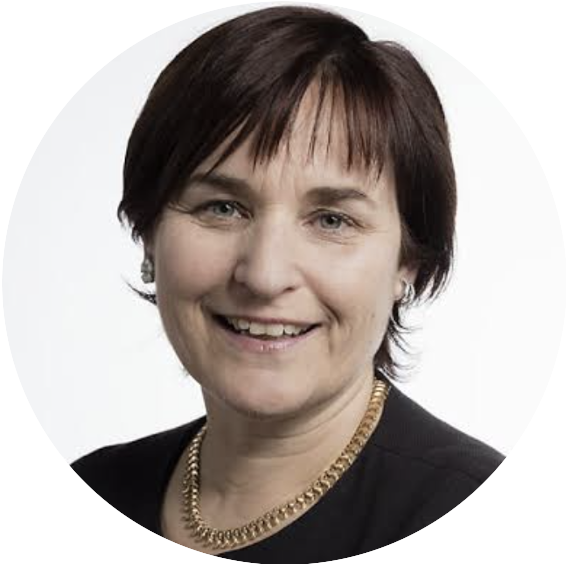
MARINA CAROBBIO GUSCETTI
Head of the Department of Education, Culture and Sport, Ticino State Council
Marina Carobbio Guscetti is a Swiss politician, born in Bellinzona on 12 June 1966. After graduating in medicine from the University of Basel in 1991, she worked as a family doctor. She has been vice-president of the Swiss Socialist Party since 2008 and currently holds the position of State Councillor for the canton of Ticino, heading the Department of Education, Culture and Sport.
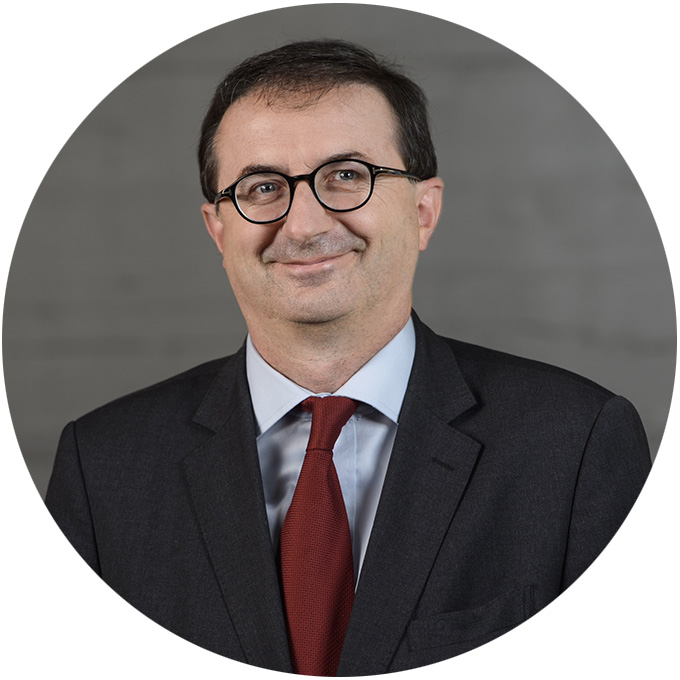
WOLFGANG A. BRÜLHART
Special Envoy MENA region
Ambassador Wolfgang Amadeus Brülhart serves as Swiss Special Envoy MENA since February 2022. Previously, he was Head of the Swiss Mission to the Organisation for Security and Co-operation in Europe (OSCE), to the United Nations and other International Organisations in Vienna. From 2012 until 2019, he was Assistant State Secretary and Director of the Middle East and North Africa Division (with the title of ambassador) at the Swiss Federal Ministry of Foreign Affairs in Berne (Federal Department of Foreign Affairs FDFA in Bern). Between 2008 and 2012, he served as Swiss Ambassador to the United Arab Emirates, and from 2003 until 2007 he was Head of the Human Rights Policy Section and Head of the Task Force “Human Rights Council” at the Swiss Department of Foreign Affairs in Berne.
Ambassador Brülhart was always committed to culture and its role in peace processes, as his assignments as Cultural Counsellor at the Swiss Embassies in London (1999-2002) and Sarajevo (1996-1998) testify. At the beginning of his career, he worked as Private Secretary to the former Swiss President, Swiss Minister of Foreign and former Swiss Minister of Home Affairs, Flavio Cotti, and served as Head of Studies and Planning for the General Secretariat of the Christian Democratic Party of Switzerland.
Ambassador Brülhart attended “Mediation and Negotiation Courses” at the UN and at the Swiss Ministry of Foreign Affairs. In 2016, he was facilitator, during a 14-months negotiations period, between US and Iran on the exchange of prisoners, and in the same year he was recipient of the “Honorary Heart of Sarajevo Award” from the Sarajevo Film Festival, for his “cultural achievements in 1996-1998” in Bosnia and Herzegovina.
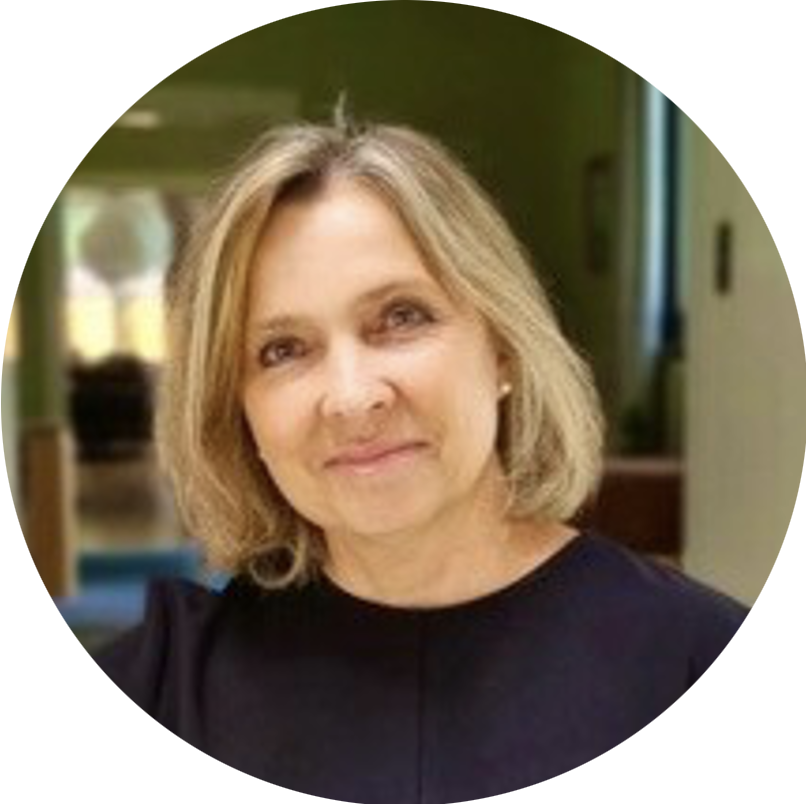
FLORENCE TINGUELY MATTLI
Swiss Ambassador to Qatar
Florence Tinguely Mattli is currently the Swiss Ambassador to Qatar, following previous ambassadorships in Denmark, Liechtenstein, and Tanzania. A seasoned diplomat with a background in economics, she has held various leadership roles in the Swiss Federal Department of Foreign Affairs and has contributed significantly to Swiss foreign relations.

MONIKA SCHMUTZ KIRGÖZ
Swiss Ambassador to Italy and future Head of the MENA Division
Monika Schmutz Kirgöz was born in 1968 and is originally from Basel and Chiasso (Ticino). She graduated in political science and sociology from the University of Lausanne. She later completed a Master of Advanced Studies in Development Cooperation (NADEL) at the Swiss Federal Institute of Technology in Zurich (ETH) and worked for several years in development cooperation. In 1996, she joined the Swiss Federal Department of Foreign Affairs (FDFA), beginning her diplomatic career. She completed her training in Bern and Rome.
Subsequently, she took on the role of spokesperson for the FDFA. In 2000, she was posted to Ankara as Head of Political and Cultural Affairs. In 2004, she was transferred to Rome as Head of the Economic, Trade, and Finance Section. In 2007, she assumed the position of Deputy Head of Mission in Tel Aviv. In 2011, she was appointed Consul General in Istanbul. In 2017, she was accredited as the Swiss Ambassador to Beirut. Since 2021, she has served as the Swiss Ambassador to Italy.
Ambassador Monika Schmutz Kirgöz is a native German speaker and also speaks Italian, French, English, and Turkish.
She is married and has two children.
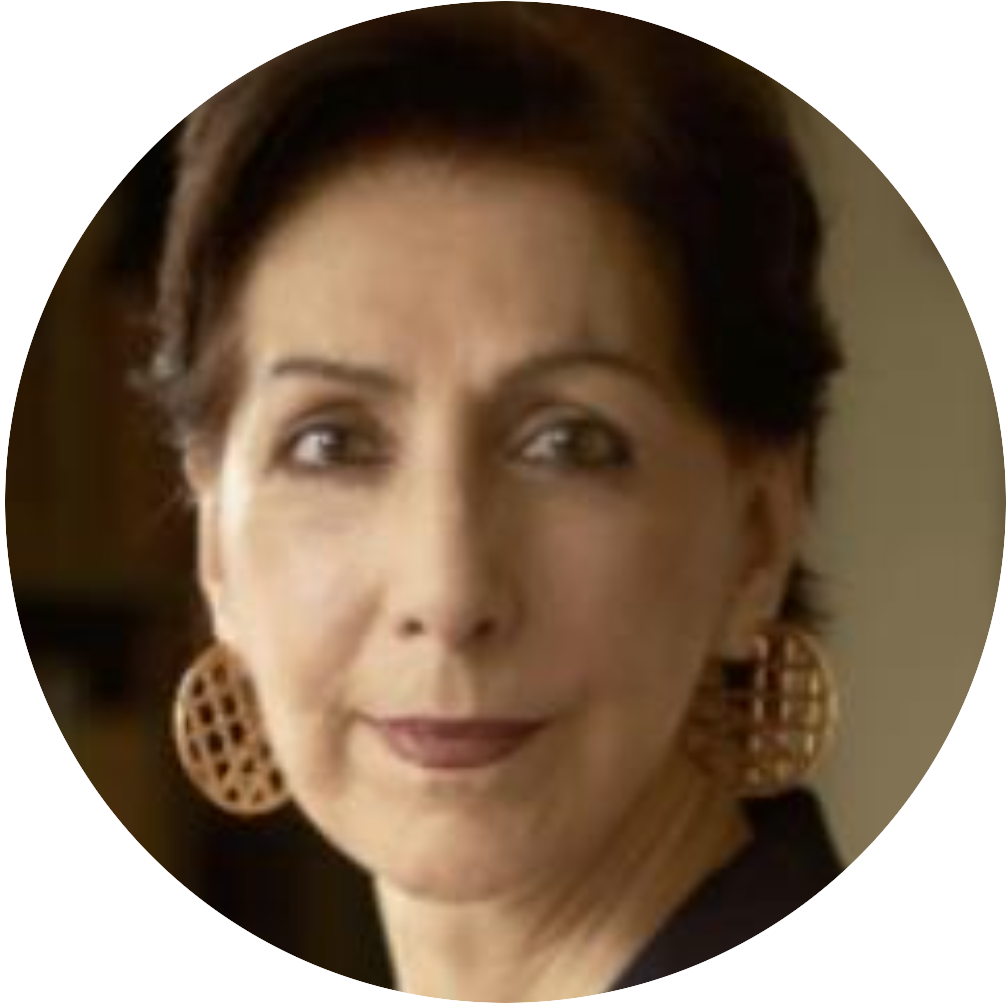
ROXANE FARMANFARMAIAN
Academic Director, Institute of Continuing Education, University Cambridge
Dr Roxane Farmanfarmaian is Director of International Studies and Global Politics at the University of Cambridge Institute for Continuing Education, and is a specialist in Middle East politics and security. She teaches the International Relations of the Modern Middle East at the Politics Faculty (POLIS) at Cambridge, where she served as editor of the Cambridge Review of International Relations, and where she obtained her MPhil and PhD. She wrote Blood and Oil: Inside Iran from the Shah to the Ayatollah (Random House), has published in numerous academic journals including Media, Culture and Society, and Middle East Critique, and edited a number of collected volumes, including Media and Politics in the Southern Mediterranean (Routledge 2021), and War and Peace in Qajar Persia (IB Tauris 2008). She appears regularly on the BBC, Sky News and Al-Jazeera, is a Senior Fellow at the European Leadership Network, and served as a Resident Fellow at the Netherlands Institute of Advanced Studies from 2017-2018. She received her BA from Princeton, and currently lives in London.
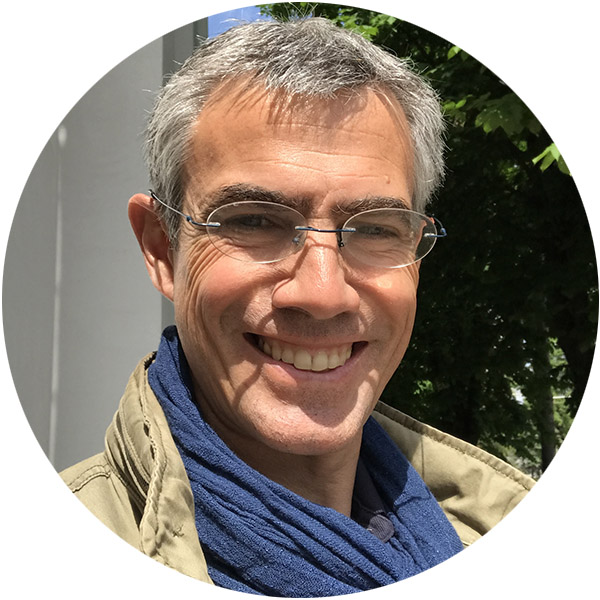
EMILIANO BOS
Journalist, RSI Radiotelevisione svizzera
Emiliano Bos writes on international issues and has produced reports from about forty countries, in particular from Africa and the Middle East. From 2015 to 2021 he was a correspondent for RSI Radiotelevisione svizzera, from the United States. For RSI Radiotelevisione svizzera, he has followed the conflict in Ukraine from the beginning, where he went twice, spending over a month on the ground and making reports for TV, radio and the web. In 2011 he was the author of the TV documentary “Mare deserto” about the shipwreck of dozens of migrants in the Mediterranean. A year earlier he published the book “In fuga dalla mia terra”, a journey along the immigration routes.
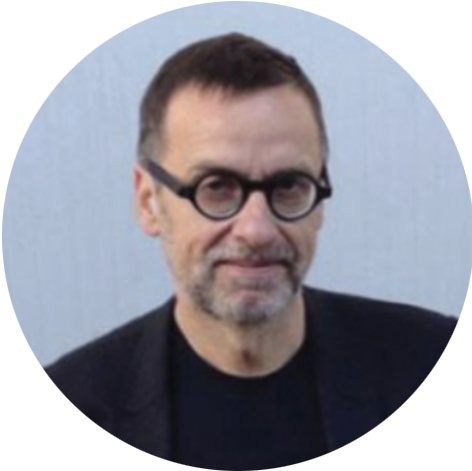
FERNANDO GENTILINI
Author and Diplomat
Fernando Gentilini – an Italian diplomat with more than twenty years’ experience in crisis management, peace negotiations, multilateral and European affairs. Fernando Gentilini was born in Subiaco (Rome) on 2nd March 1962 and joined the Italian Diplomatic Service in 1990. He has served in the Italian Embassy in Addis Ababa and in the Italian Permanent Representation to the E.U. in Brussels. In 1999, he was seconded to the Policy Unity of the Secretary General/High Representative for the CFSP in Brussels and deployed in several Balkan hot spots. In 2003 he served as head of the Balkan Department in the Italian MFA. In 2004 he became the personal representative of the High Representative for CFSP in Kosovo. In 2006, he was appointed Deputy Diplomatic Advisor to the Italian Prime Minister. In 2008, he was nominated NATO Senior Civilian Representative in Afghanistan. In 2011, he was appointed European Union Special Representative in Kosovo. In 2012 he served as Director for Western Europe, Western Balkans, and Turkey for the European External Action Service. In 2015 he was appointed European Union Special Representative for the Middle East Peace Process. In July 2018, Mr. Gentilini was appointed as the EEAS Managing Director for the Middle East and North Africa.
Mr. Gentilini has also served as the principal advisor at the European Diplomatic Academy from July 2022 until August 2024.
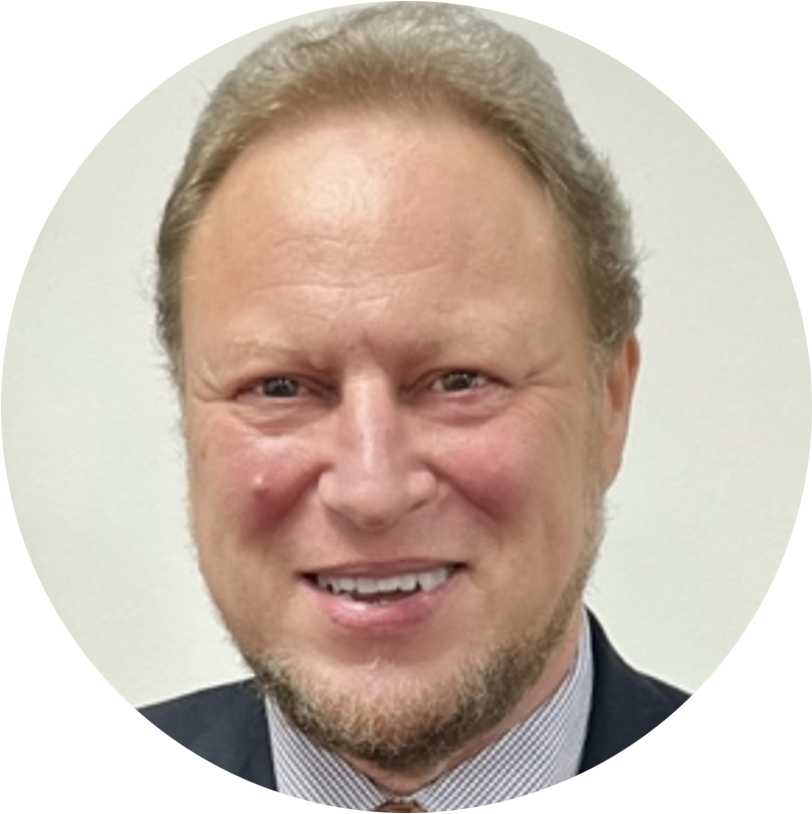
MICHAEL A. KÖHLER
Ambassador and co-lead of the Grand Bargain to improve humanitarian aid systems
From August 2019 to January 2024 Dr Köhler was Deputy Acting Director-General for European Civil Protection and Humanitarian Aid Operations in the European Commission’s DG ECHO, in charge of coordinating the world-wide EU humanitarian aid activities.
From April 2022 to March 2023 he was Acting Director- General of DG ECHO.
In June 2023 Dr Köhler has been appointed Ambassador and co-lead of the Grand Bargain agreement between some of the largest donors and humanitarian organisations who have committed to improve the effectiveness and efficiency of the humanitarian action.
Previously, from 2015 to 2019, he was Director for EU-Neighbourhood Policy at the Directorate-General for Neighbourhood and Enlargement Negotiations (DG NEAR) in the European Commission, where he was responsible for cooperation with Mediterranean Arab countries and Israel. From 2013 to 2014, he had been Director for the Eastern and Southern Neighbourhood in the Directorate-General for development and International Cooperation (DG DEVCO), Head of Cabinet to Commissioner for Energy, Günther H. Oettinger between 2010 and 2013 and Head of Cabinet to Commissioner for Maritime Affairs and Fisheries, Dr Joe Borg, between 2008 and 2009. Since he joined the European Commission in 1994, Dr Köhler held several positions, including desk officer for Yemen and Iraq; Assistant to the Director for South Mediterranean, Middle and Near East; Deputy European Correspondent; Deputy Head of Unit in charge of the co-ordination of Common Foreign and Security Policy; Deputy Head of Cabinet to Commissioner Borg, Head of Unit for International Affairs and Law of the Sea at the Directorate-General for Maritime Affairs and Fisheries and acting Head of Unit for Maritime Policy for the Mediterranean and Black Sea.
Before joining the European Commission, he worked as a representative of Konrad-Adenauer-Foundation in Morocco and Tunisia, and later worked in the Policy Planning Department of the Federal Ministry of Economic Co-operation and Development in Germany.
Michael Köhler holds a Dr. phil. in History and Middle Eastern Studies from Hamburg University (1987). He authored about thirty books, articles in international Islamic studies and foreign policy reviews on aspects of the political, economic and cultural development of the Muslim World, on the Arab League and on regional integration in the Maghreb, co-operation in the Mediterranean and development co-operation. Since 1997 he is a professor for “Europe and the Mediterranean” the College of Europe in Bruges, Belgium, and teaches at Université Paris1 – Panthéon-Sorbonne, France. He is also a professor at LUISS Guido Carlì’s Master Programme in Mediterranean Cooperation and Security in Rome, Italy. Before he was offering courses in peacebuilding at PSIA/Sciences Po, Paris, and in addition between 2006 and 2016 he served as a senior Fellow of the Center for European Integration Studies at the University of Bonn, Germany.
Dr Köhler is an Associate Senor Fellow or Board Member of various well-renowned EU, German, Belgian, Spanish and UK-based foundations and Think Tanks in international relations, peace and mediation, and development studies.

NATASHA CARMI
Water-Peace Programme Manager, Geneva Water Hub
Eng. Natasha Carmi is the Water Peace Programme Manager, leading the programmes for building peace through water in the West Asia and North Africa region at the Geneva Water Hub- a Centre of Competence on Water for Peace based at the University of Geneva and the Graduate Institute of International and Development Studies. Since 2018, she has co-led the establishment of the Global Observatory on Water and Peace at both the global and community of expert levels, and is co-founder of the Women in Water Diplomacy in the MENA region initiative.
Prior to her current post, she was water, agriculture and environment policy advisor to the Palestinian Negotiations Support Project, working closely with decision makers. She has experience in bilateral and regional water negotiations, in which water is a core political issue and international water law is a necessary framework for resolving conflicts , and identifying opportunities and solutions. She is used to working in highly sensitive and timely political environments, and has over 25 years experience in the WANA/Mediterranean region. She is frequently a speaker at universities, conferences and workshops on transboundary water resources and water for peace diplomacy , and runs role play and mock negotiations.
An engineer by education, Natasha holds a Master’s Degree in Hydrology for Environmental Management, from Imperial College in London.
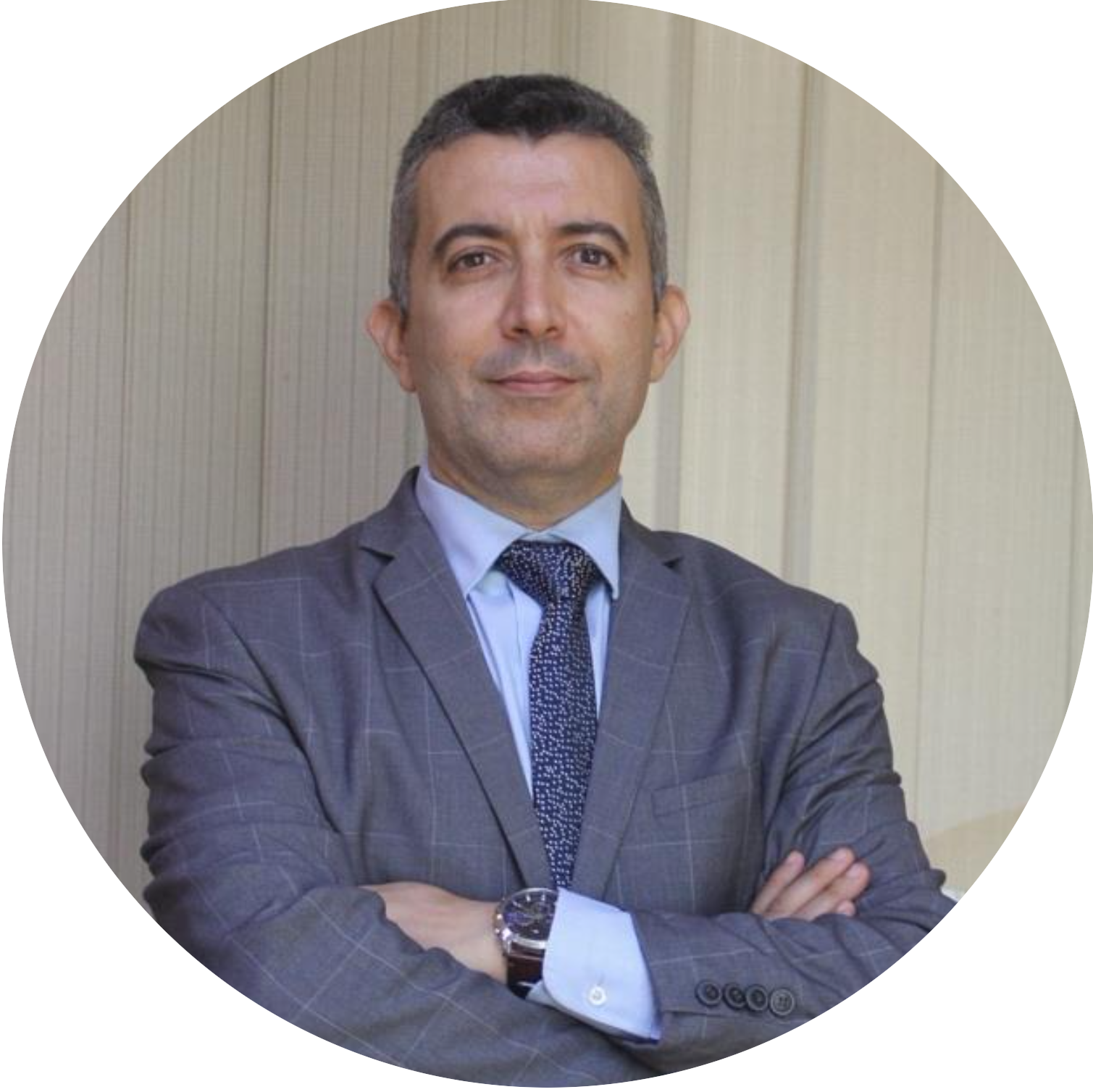
JAUAD EL KHARRAZ
Executive Director at the Regional Center for Renewable Energy and Energy Efficiency
Dr. Jauad El Kharraz is the CEO of WECEN (Water-Energy-Climate Experts Network). He has been Executive Director of the Regional Center for Renewable Energy and Energy Efficiency (RCREEE) for the last 3 years. Dr. El Kharraz has over 25 years of experience in various sustainability fields including energy policies, in addition to water policies, desalination, water-energy-food nexus, climate and water diplomacy. Dr. El Kharraz has been senior consultant for several prestigious institutions (e.g., European Commission, UN-ESCWA, FAO, PRIMA Foundation, EU-GCC Clean Energy Technology Network..), and he held the position of Director of Research at the Middle East Desalination Research Center in Oman (2015-2020). He is a member of the Mediterranean Water Institute, Oman Energy Majlis, and Oman Water Society.
Dr. El Kharraz sustainability career officially started in 1998 as a researcher at the Global Change Unit -University of Valencia and projects manager later at the Euro-Mediterranean Water Information System, France (2004-2015). Dr. El Kharraz obtained his MSc and PhD degrees in Physics from the Department of Earth Physics, University of Valencia, Spain, and a diploma in enterprises management and strategies from SKEMA Business School, France. He is a fluent French, Arabic, Spanish and English speaker.
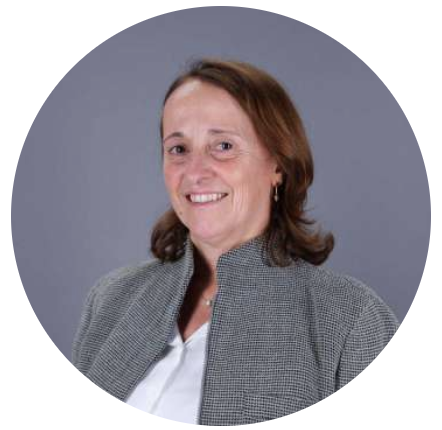
LUISA LAMBERTINI
Rector, Università della Svizzera italiana
Luisa Lambertini is Rector of Università della Svizzera italiana and Professor of International Finance at EPFL and at USI. She has been Associate Vice-President of the Ecole Polytechnique Fédérale de Lausanne (EPFL), at the head of the Doctoral School (with 2400 students and 22 programmes) and of continuing education. Professor Lambertini has held the chair of International Finance at EPFL since 2009, which she arrived at after a brilliant academic career developed at prestigious American universities such as the University of California at Los Angeles (UCLA) and Boston College. A world-renowned expert in the fields of international finance, macroeconomics and political economy, she has worked with a number of major international institutions, notably as an advisor to the European Central Bank (Fiscal Policy Division), the Federal Reserve Bank and the Swiss National Bank. She was president of the International Banking, Economics and Finance Association (IBEFA). For many years she chaired the WISH Foundation (Women in Sciences and the Humanities) at EPFL, inaugurating innovative initiatives, financed by private donations, to promote women’s careers in research.
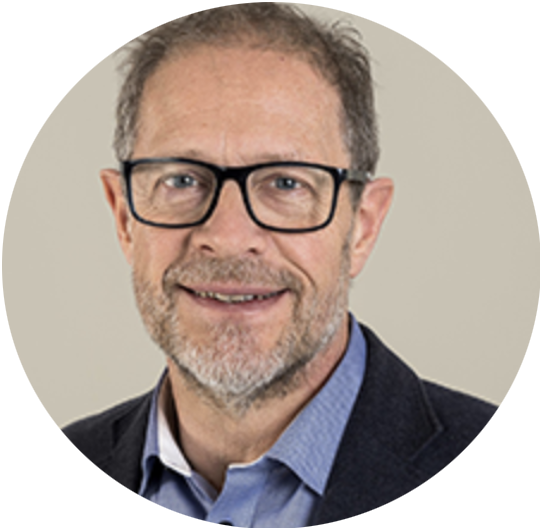
RAOUL GHISLETTA
Member of the City Council of Lugano, Switzerland
Raoul Ghisletta holds a degree in history (University of Geneva) and a diploma in administrative science (IDHEAP). Since 1992 he has worked for the Personnel Union for Public and Social Services – VPOD Ticino, as a trade unionist (regional secretary).
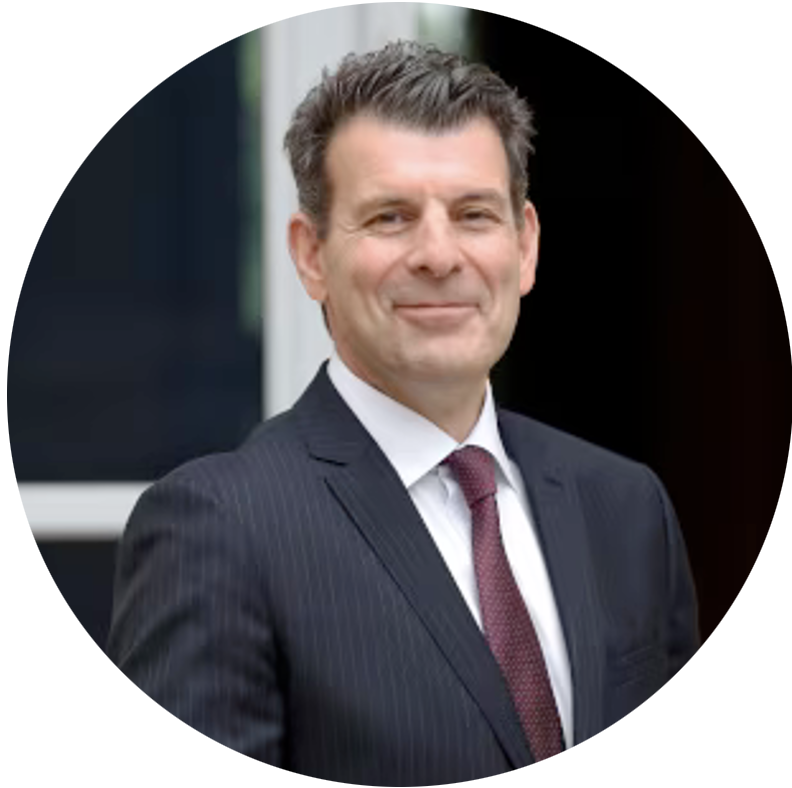
ROBERTO BALZARETTI
Swiss Ambassador to France
Active in the diplomatic field since the early 1990s, Roberto Balzaretti is an influential figure within the Federal Administration in Bern. Born in 1965 and a native of Ligornetto, he began working at the Federal Department of Foreign Affairs (FDFA) in 1991, after obtaining his doctorate in law from the University of Bern. After completing an initial internship in the Swiss capital, he went to Brussels to work at the Swiss Mission to the European Communities. This was followed by another mission, at the Swiss diplomatic post in Washington, from 1997 to 1999, when he was promoted to the rank of embassy counselor. In October 2004, he became diplomatic advisor and chief of staff in the office of the head of the FDFA, with the title of ambassador. In 2008, he took a brief break from the diplomatic environment, but by December he returned to the department’s ranks as Secretary-General of the FDFA. He held this position until 2012, when Balzaretti was appointed ambassador and head of the Swiss Mission to the European Union in Brussels. From 2016 to 2018, he was the head of the Directorate of International Law and legal advisor to the Federal Department of Foreign Affairs (FDFA). On February 1, 2018, he was appointed by the Federal Council as Director of the Directorate for European Affairs and coordinator of all negotiations with the EU and was given the title of State Secretary. On December 2, 2020, Balzaretti became the Swiss Ambassador to France and the Principality of Monaco.
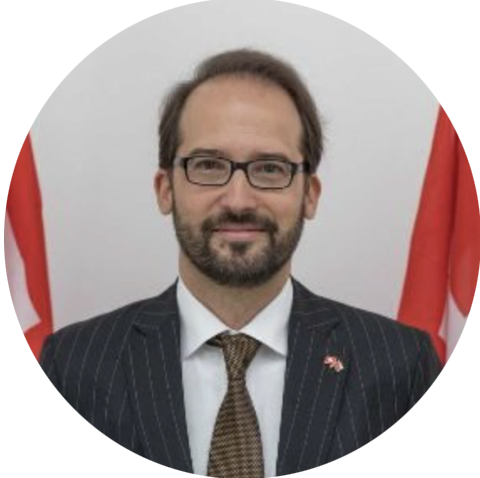
THOMAS OERTLE
Ambassador of Switzerland to Oman and Yemen
Born 1974, completed his studies in molecular biology and neuroscience at the Swiss Federal Institute of Technology in Zurich (ETHZ) with a PhD in Natural Sciences. In 2004, he entered the service of the Federal Department of Foreign Affairs and was assigned as a diplomatic trainee in Tel Aviv. From 2005 he was a staff member of the Coordinator for the Middle East Peace Process in the Political Affairs Division Peace and Human Rights and from 2006 Deputy Regional Coordinator for the Political Affairs Division Middle East and North Africa in Bern. In 2009, he was transferred to Damascus as Deputy Head of Mission of the Swiss Embassy to Syria and Iraq. In 2012, he returned to headquarters and was assigned as Regional Coordinator for the Middle East in the Political Affairs Division Middle East and North Africa and then as a diplomatic staff member in the OSCE Task Force. From 2014, Mr. Oertle was Head of the Middle East and North Africa Division in the Swiss Agency for Development and Cooperation (SDC) in Bern. From 2018, he was the Regional Head of International Cooperation for the Horn of Africa at the Embassy in Nairobi. Since 2022, Mr. Oertle has been the Ambassador to Oman and Yemen at the Embassy in Muscat.
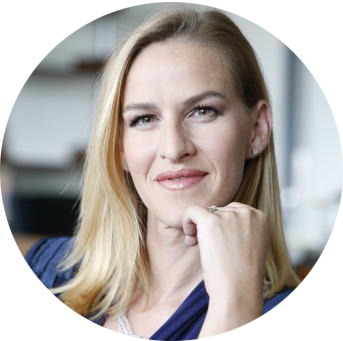
DIANA SEGANTINI
Advisor for Arts, culture, heritage and media
Diana Segantini is a Swiss/Norwegian citizen who specialised in Arab-Islamic Studies at L’Orientale University in Naples and holds a Masters in International Relations from IUHEI Geneva. Segantini started her professional career in the art and documentary film scene, as well as gaining extensive experience working in different countries serving the UN, various NGOs and more extensively in the Middle East as a delegate for the International Red Cross ICRC for 4 years. Fluent in Arabic and 9 other languages, she has become an expert on the Arab region and with regard to intercultural issues.
In 2008, she founded Segantini Unlimited, an agency specialised in cultural mediation and international cultural productions such as art exhibitions, music events, debates and documentary films, mandated by the Global Ethic Foundation.
Segantini has also led women’s empowerment programs in Saudi Arabia and the rest of the GCC. For 6 years, she was head of Arts & Culture for Swiss TV and radio RSI and a Member of the RSI Board, producing music concerts and over 100 feature and documentary films, acclaimed at various international Festivals.
Since 2019, she has contributed to Saudi Arabia’s Vision 2030 through several projects; in 2019 she was appointed Chief Heritage & Culture officer at Diriyah Gate Development Authority in Saudi Arabia, responsible for this UNESCO Heritage Site, building up several cultural institutions such as museums, academies and an Art District. She subsequently served as senior director for Arts & Culture at AMAALA. Currently, she is Partner for Culture, Heritage & Communication at AEON Strategy, a Saudi firm specialised in true sustainability. Moreover, she is an independent advisor for arts, culture, media & philanthropy in different projects in GCC and Switzerland.
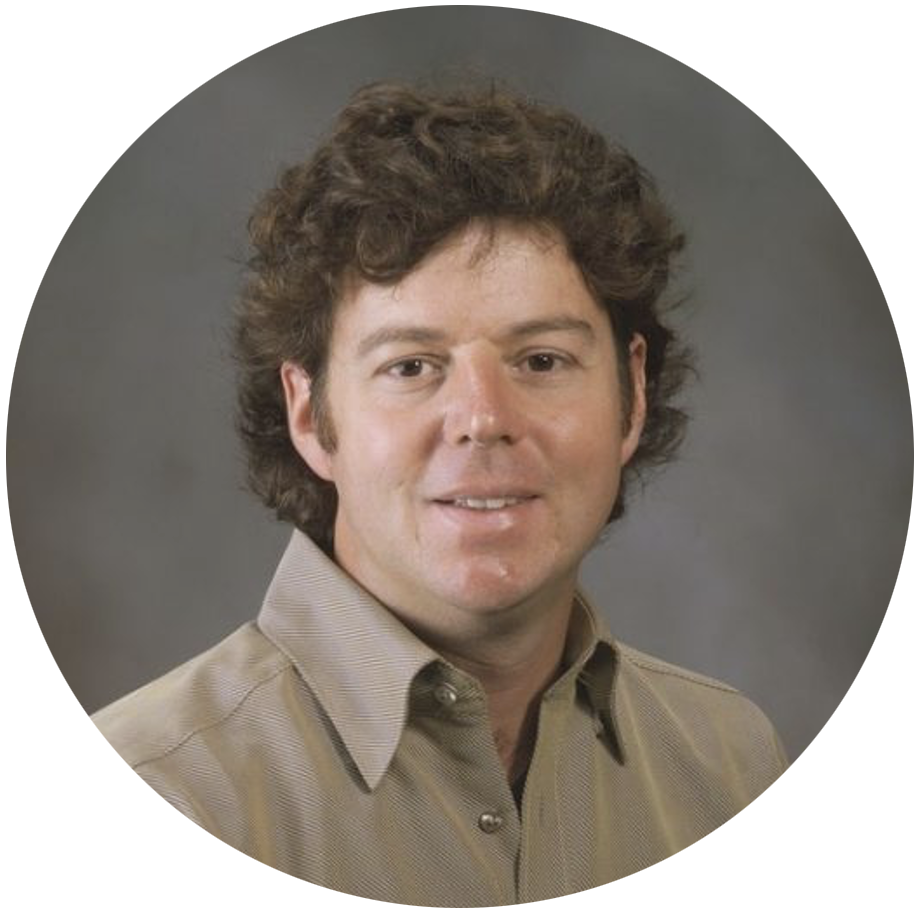
SCOTT G. NELSON
Department of Political Science Virginia Tech
Scott G. Nelson, Ph.D. is an Associate Professor of Political Science at Virginia Tech, specializing in international relations, international political economy, political philosophy and political theory. With a Ph.D. in political science from Arizona State University, his research spans sovereignty, ethics, liberalism, and global economic issues. He has published works including Sovereignty and the Limits of the Liberal Imagination and The Ashgate Research Companion to Modern Theory, Modern Power, World Politics: Critical Investigations. Dr. Nelson is recognized for his teaching excellence and has held notable roles, such as Director of Graduate Studies at Virginia Tech and Seaker Chan Fellow at Fudan University in Shanghai. His dedication to education earned him the 2000 Department of Political Science Outstanding Teaching Recognition Award at Virginia Tech.
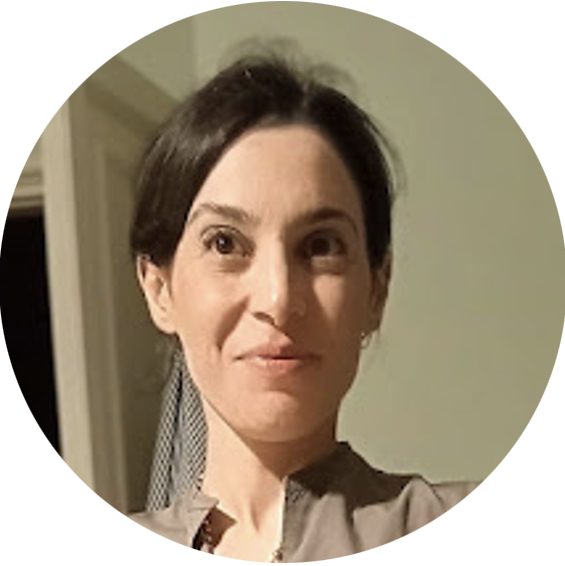
WIDAD TAMIMI
Writer
Widad Tamimi studied international law at the School of Oriental and African Studies in London. She has always worked with migrants. She writes short stories, novels, and newspaper articles for various publications, both Italian and foreign. She was born stateless, from a Palestinian family on one side and a Jewish family on the other, and was raised in a model of peace and tolerance that she hopes to give back to the world, starting with Palestine.
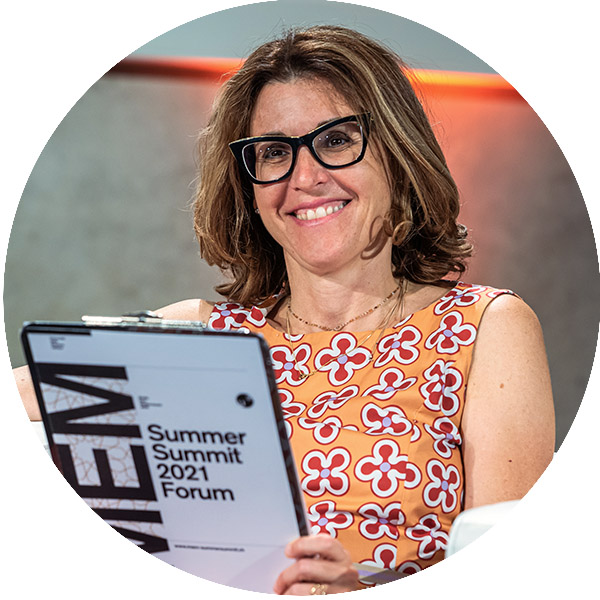
FEDERICA FREDIANI
Lecturer, MEM Project Leader, Università della Svizzera italiana
Federica Frediani is a lecturer at the Università della Svizzera italiana. She is a member of the Project Committee and the Project Leader for the Middle East Mediterranean Summit. Dr. Frediani earned her Ph.D. in Comparative Literature from the Università di Siena.
Her research primarily explores representations, narratives, cultural productions, and the political and intercultural dynamics of the Middle East Mediterranean region. She has published various books and articles, with a particular focus on women’s travel literature and the cultural and political relationships between the northern and southern shores of the Mediterranean.
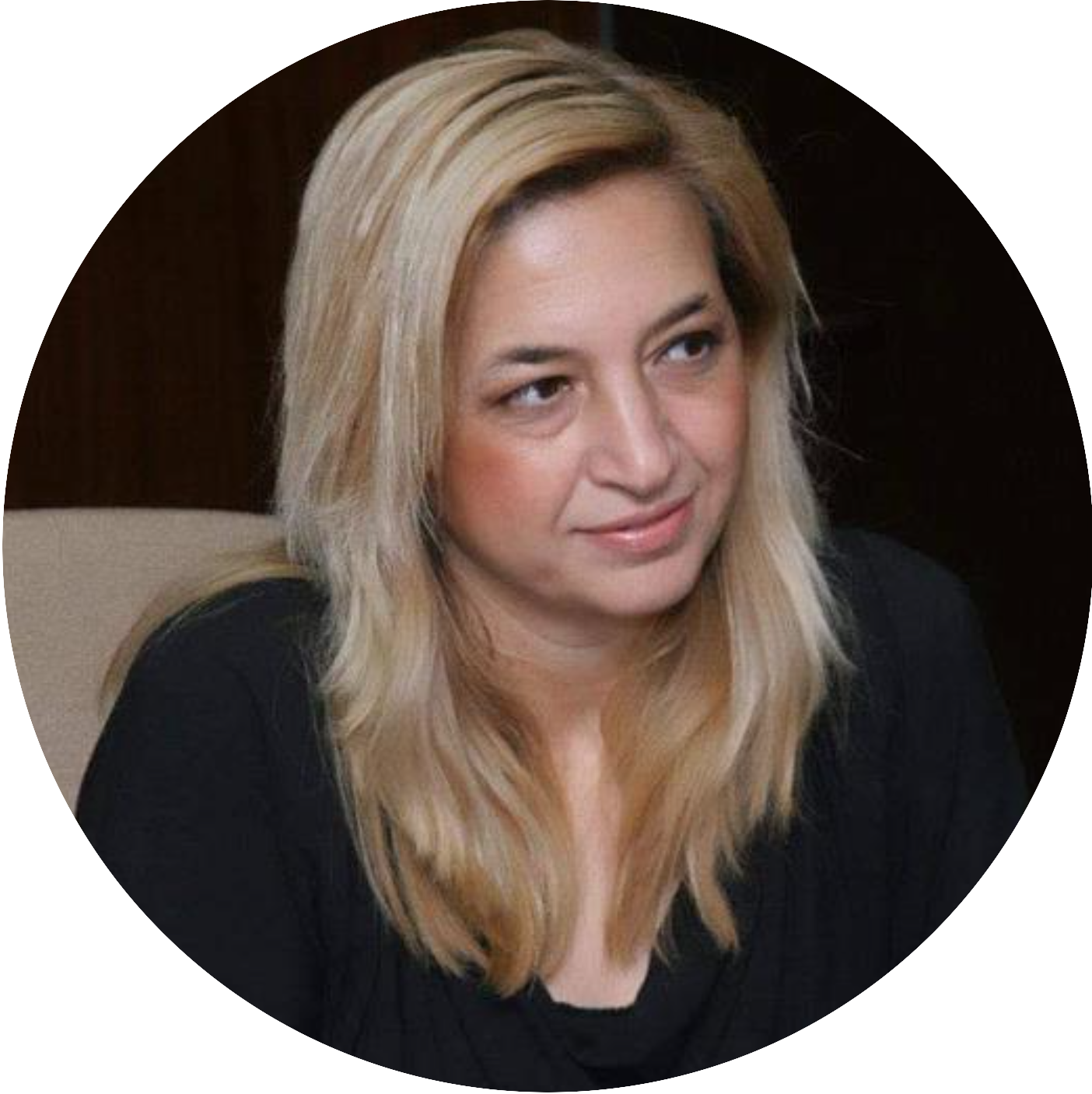
MAYSOON AL-ZOUBI
Representative of Blue Peace Middle East
Maysoon Al-Zoubi currently Project Manager of the seven-year project titled “Building resilience to cope with climate change in Jordan through improving water use efficiency in the agriculture sector (BRCCJ)”, at Food and Agriculture organization of the United Nations (January 2020-present). Until recently has been the Secretary General of the Higher Population Council. From January 2009 to July 2012, she has been the Secretary General of the Jordan Ministry of Water & Irrigation. She joint the Hashemite Royal Court as Senior Policy Analyst / Economic Affairs Department from 2007 to 2009. Before that, she was seconded to the Prime Ministry of Jordan as Senior Infrastructure Specialist from April 2005 to April 2007.
She has more than 30 years of experience managing water resources in Jordan demonstrating political savviness and diplomacy working closely with numerous political and private stakeholders. She served as the Technical Committee Chair for the ambitious Red to Dead Sea Project, Negotiator and Ambassador for Climate Change, Jordan. She is the chair of the Management Committee of the Blue Peace Middle East Regional Mechanism, under the supervision of HRH Prince Hasan Bin Talal, Initiator and Co-founder of Women & Water Diplomacy in the MENA region initiative, Member in the U.S. National Academy of Sciences committee on Transboundary Water security.
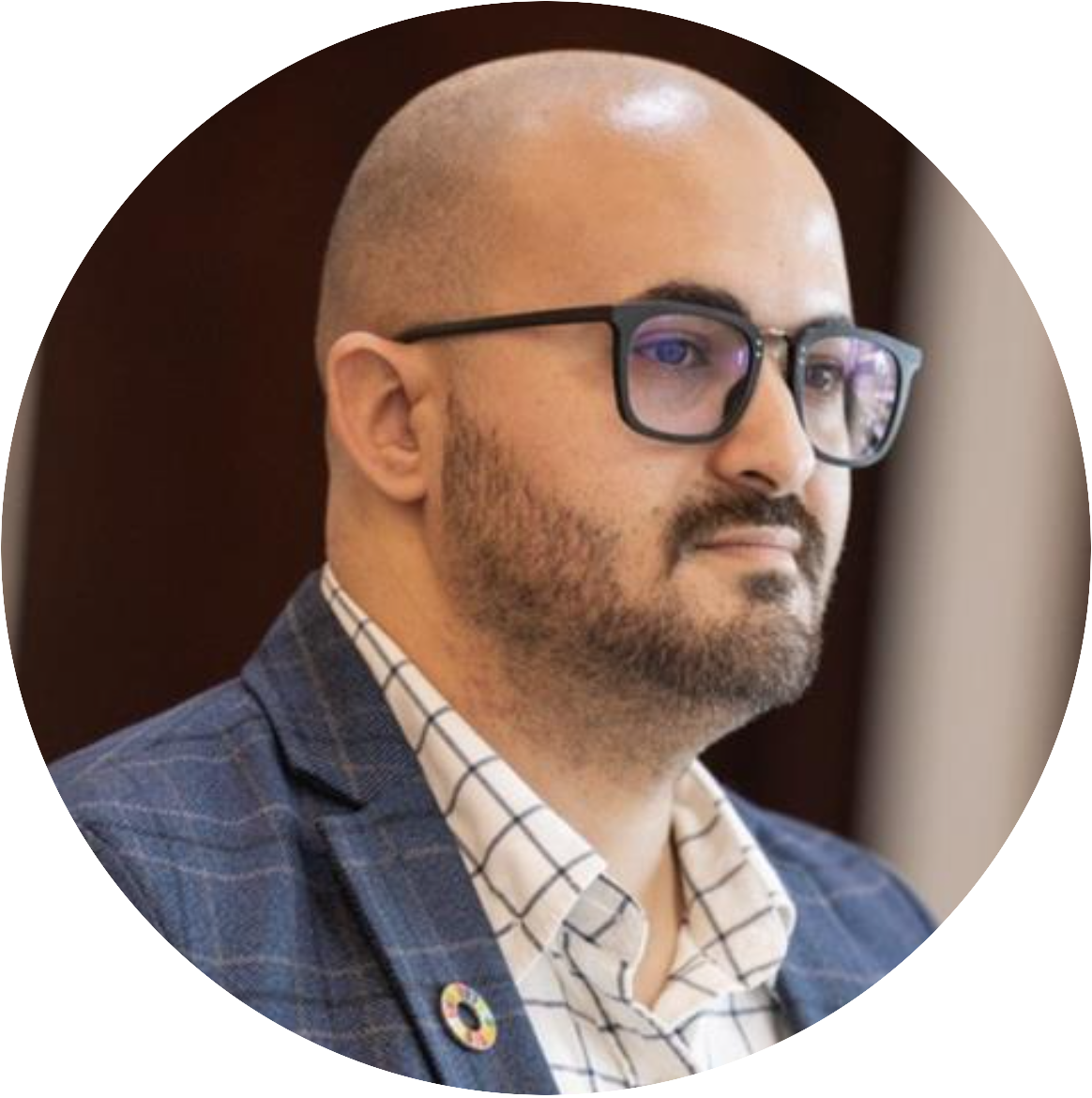
HAMZA SAIDI
Moderator and MEM Alumni
Hamza Saidi is a versatile civil society and youth empowerment advocate with extensive project management and partnerships experience in fast-paced, complex environments in the Middle East and North Africa and the wider Mediterranean region, including in relation to the EU. He is the Project Manager at Konrad-Adenauer-Stiftung’s Regional Program Energy Security and Climate Change MENA. In this role, he conceptualizes and implements key projects across the region and the EU on various strategic topics, bridging cooperation through multi-stakeholder dialogue and research. Hamza was an adjunct professor at the Faculty of Human Sciences, Mohammed V University and a regional research assistant at Global Young Academy (GYA), covering North Africa for the GloSYS Africa project. Hamza is a Wilson Center Agents of Change Youth Fellow, U.S. Dept. of State Professional Fellow, UNAOC Fellow, World Economic Forum Global Shaper, and the co-founder of the non-profit the Youth Forum for Democracy and Citizenship (YFDC).
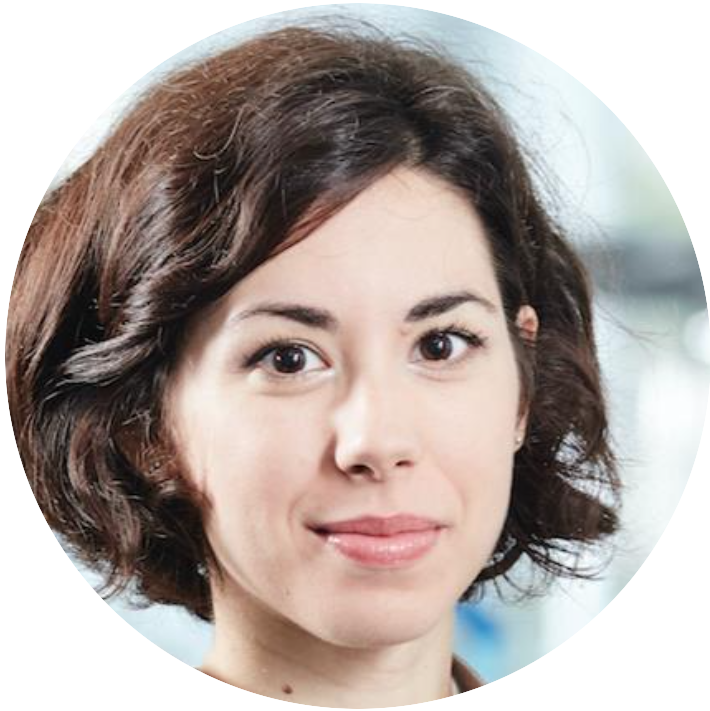
ILARIA ESPA
Università della Svizzera italiana
Ilaria Espa is Associate Professor of International Economic Law at USI Lugano and Senior Research Fellow at the World Trade Institute (WTI) in Bern. She is furthermore Adjunct Professor at the Catholic University of the Sacred Heart in Milan and Lead Counsel of the ‘Natural Resources’ Programme of the Centre for International Sustainable Development Law (CISDL). On 23 June 2022, the European Commission she was added to the “List of Candidates for Appointment as Arbitrators and Trade and Sustainable Development Experts”. She has taught and held visiting positions in several universities in Italy, Germany, Switzerland, China and the US.
Online Streaming
You will be able to follow the online streaming of the Forum here, on 27 August, at 09:00 (CEST).
